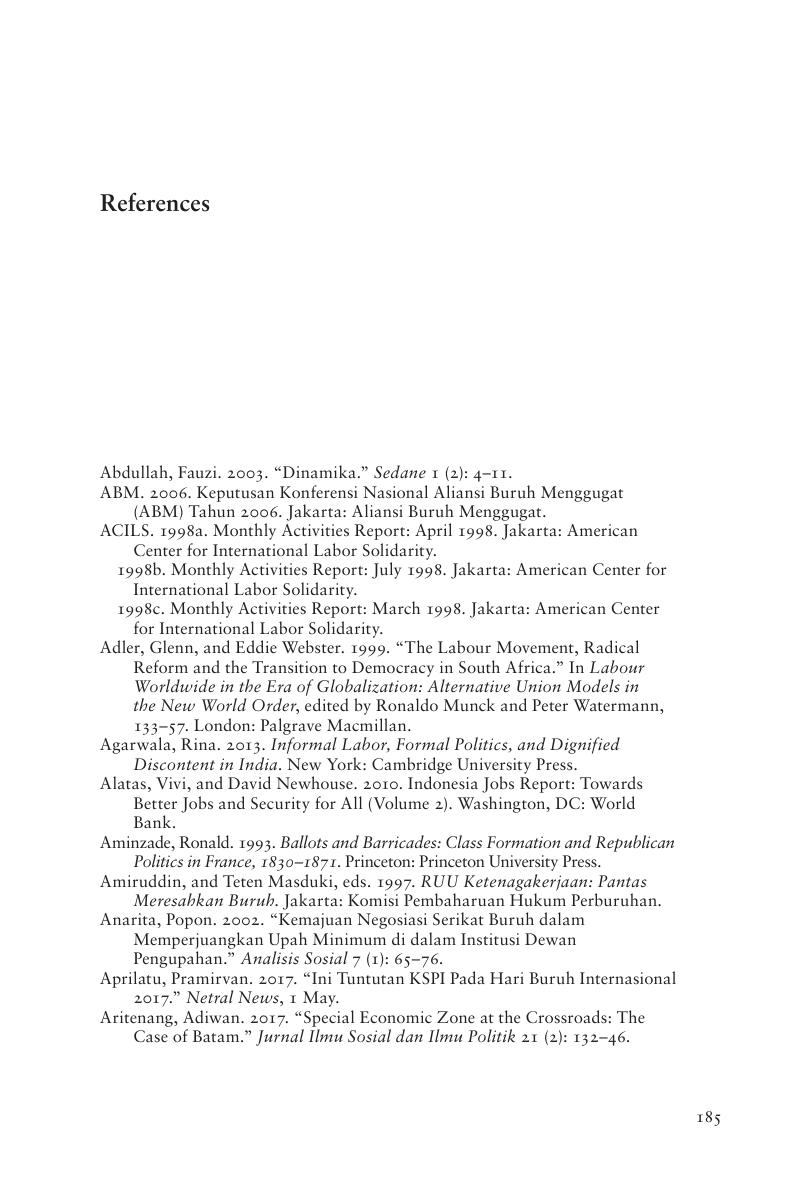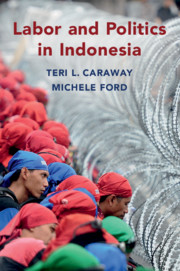Book contents
- Labor and Politics in Indonesia
- Cambridge Studies in Contentious Politics
- Labor and Politics in Indonesia
- Copyright page
- Contents
- Figures
- Tables
- Acknowledgments
- Abbreviations
- 1 Introduction
- 2 The Street and the Ballot Box
- 3 National and Local Policy Struggles, 1998–2008
- 4 Shifting to Offense
- 5 Local Executive Races
- 6 Legislative Contests
- 7 Building a Working-Class Constituency
- 8 Conclusion
- References
- Index
- Cambridge Studies in Contentious Politics
- References
References
Published online by Cambridge University Press: 02 March 2020
- Labor and Politics in Indonesia
- Cambridge Studies in Contentious Politics
- Labor and Politics in Indonesia
- Copyright page
- Contents
- Figures
- Tables
- Acknowledgments
- Abbreviations
- 1 Introduction
- 2 The Street and the Ballot Box
- 3 National and Local Policy Struggles, 1998–2008
- 4 Shifting to Offense
- 5 Local Executive Races
- 6 Legislative Contests
- 7 Building a Working-Class Constituency
- 8 Conclusion
- References
- Index
- Cambridge Studies in Contentious Politics
- References
Summary

- Type
- Chapter
- Information
- Labor and Politics in Indonesia , pp. 185 - 201Publisher: Cambridge University PressPrint publication year: 2020

